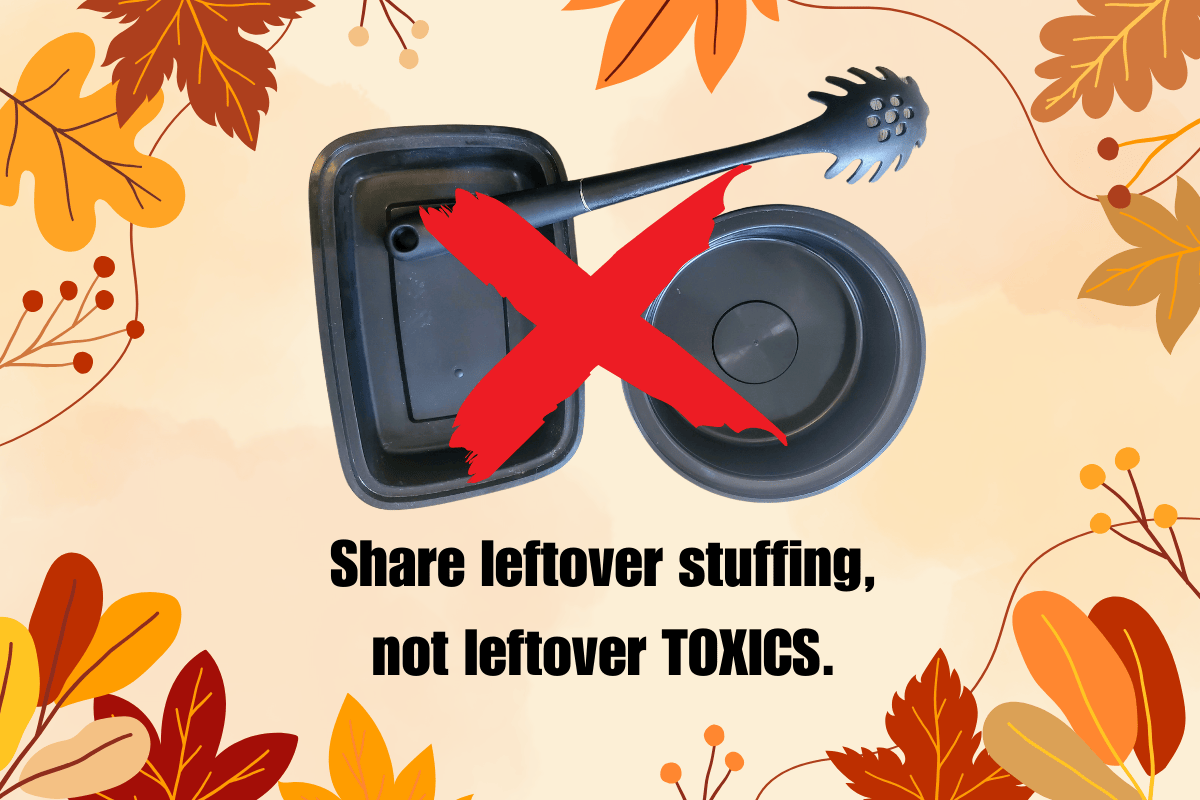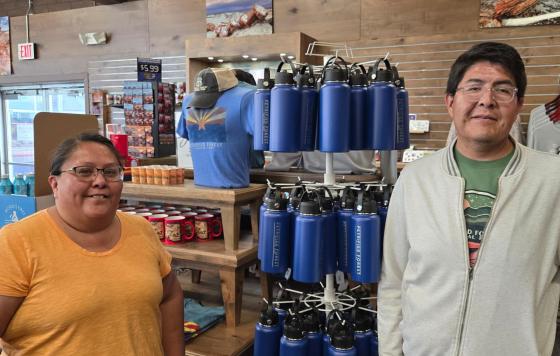
Are you serving mashed potatoes with a side of toxic flame retardants? If you have Black Plastic kitchen utensils or food containers, the answer is probably YES. How did this happen and what can we all do about it? Let us explain.
If you’re reading this, you probably value our environment and make conscious choices to reduce waste. You rinse and save the black plastic takeout containers you receive from restaurants because you want to do the right thing. And you’re likely excited to fill those containers with Thanksgiving leftovers to send home with your guests this week. Bad news – a study released this fall by our friends at Toxic Free Future confirms that items made from recycled Black Plastic are chock full of horrific cancer-causing, hormone-disrupting flame retardant chemicals.
How did this happen? The petrochemical industry wants to keep us hooked on plastics, but they really don’t want you to wade into the messy, often frightening, details. Plastics are bad for our environment at every step in their lifecycle from the extraction of fossil fuels to produce them to the mess they make as litter, waste, and microplastics. But these same giant fossil fuel companies are hoping you will be lulled by their messages of “plastic recycling.” The truth is that the vast majority of plastics will never be recycled. And, incredibly, some of that small amount of plastics recycling is the source of this toxic Black Plastic mess.
When companies manufacture plastic components for electronics, they often include a toxic soup of flame retardant chemicals. These chemicals shouldn’t be used in these products either, but at least you weren’t planning on serving cranberry sauce on your flatscreen TV. But when the plastic in these electronics is recycled, those same toxic chemicals can show up in surprising places from spatulas to children’s toys to those plastic take out containers – anything using that Black Plastic that was once an electronic component.
The health impacts of these toxic flame retardants are well-established and scary. Among the substances discovered in items in the study was deca-BDE which has been banned in the EU and the United States (although, sadly, the ban did not extend to a ban of deca-BDE in recycled plastic). These chemicals can cause cancer, disrupt hormones governing critical processes in our body, and can harm the developing brains of children.
So, what do we DO? The answer is getting these toxic chemicals out of the plastics manufacturing process and ending the practice of shrouding plastics' ingredients in mystery. Consumers shouldn’t have to wonder what chemicals are lurking in the TV! We can’t shop our way out of this problem. We need policy changes.
This November, world leaders are convening for their 5th meeting aimed at developing a global plastics treaty. The Biden administration, and future administrations, should be standing up for American consumers by demanding a global ban on the most harmful plastics and their toxic additives. And states don’t have to wait to take action! Washington and New York are already enacting strong bans on certain flame retardants this winter.
Locally, Clean Water Action is supporting reuse and recycling efforts that protect our environment, and our health, from toxics. Across New England, we have been partnering with schools, restaurants, and institutions to switch from disposable plastic food ware to safe, reusable products with our ReThink Diposable program. In Rhode Island, we are fighting for a Rhode Island bottle bill, a beverage container recycling program that keeps food-grade plastics segregated from the rest of the waste stream for recycling AND lays the groundwork for creating reuse systems.
Clean Water Action and our partners and allies will fight for the policy changes we need to get these toxic flame retardants out of everyday products. But if you have Black Plastic items in your home that come into contact with food or are designed for children, the best thing to do is throw them away. This Thanksgiving, send those leftovers home in a glass or metal container and explain why you aren’t packing food in plastic this year. Make it a topic of conversation at your table, and encourage your guests to contact their elected officials and demand changes to toxics and plastic policy to protect families.


